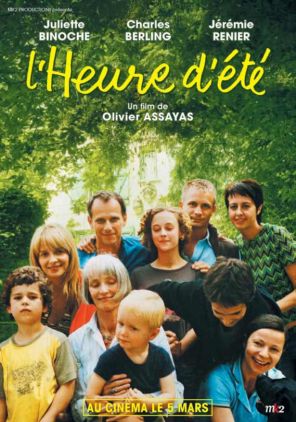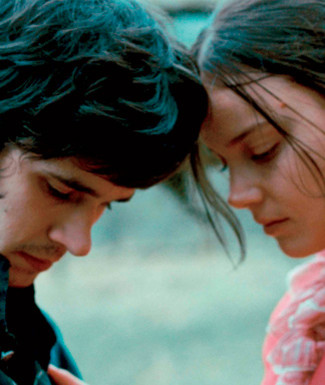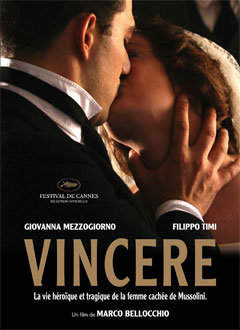 Le film commence avec des enfants qui courent dans un jardin – une chasse au trésor. Et il se termine dans le même style.
Le film commence avec des enfants qui courent dans un jardin – une chasse au trésor. Et il se termine dans le même style.
Il s’agit d’une fête – une mère vieillissante avec ses trois enfants et leurs enfants – autour d’une table dans un jardin. Elle est un peu amère. Elle aime la visite mais elle la trouve fatigante aussi. Elle essaie de parler de sa mort à Frédéric, son fils ainé. Et je crois que beacoup d’entre nous d’un certain âge peuvent reconnaître ce moment, quand il faut commencer à faire face à la fin de nos parents. Un peu plus tard, j’ai appris que Frédéric a le même âge que moi.
Mais il s’agit d’un film sur la succession, le partage des biens. Et tous ceux qui l’ont vécu reconnaîtront le mélange de regret, de cupidité, de sentiment, et de jalousie mais ce ne sont pas des discussions violentes. Ce sont des discussions comme nous avons vu, délicates, avec beaucoup qui n’est pas exprimé.
Le film suit une tradition française du cinéma: pas d’action, pas d’histoire linéaire, mais ce sont des incidents, des tranches de vie, et quelques blagues aussi (comme la vase donnée en cadeau).
On reconnaît Juliette Binoche comme Adrienne, mais le film concerne surtout Frédéric (Charles Berling). C’est lui qui a le plus d’angoisse, avec des souvenirs d’enfance, et il souhaite que ses enfants auront les mêmes souvenirs. Mais sa mère n’a pas voulu que ce soit un tombeau, et elle savait que cela devait être vendu.
C’est un film qui fait réfléchir, et lent comme je les adore.

 Another wonderful movie in Dartmouth’s
Another wonderful movie in Dartmouth’s  “Vincere” played tonight as part of the
“Vincere” played tonight as part of the